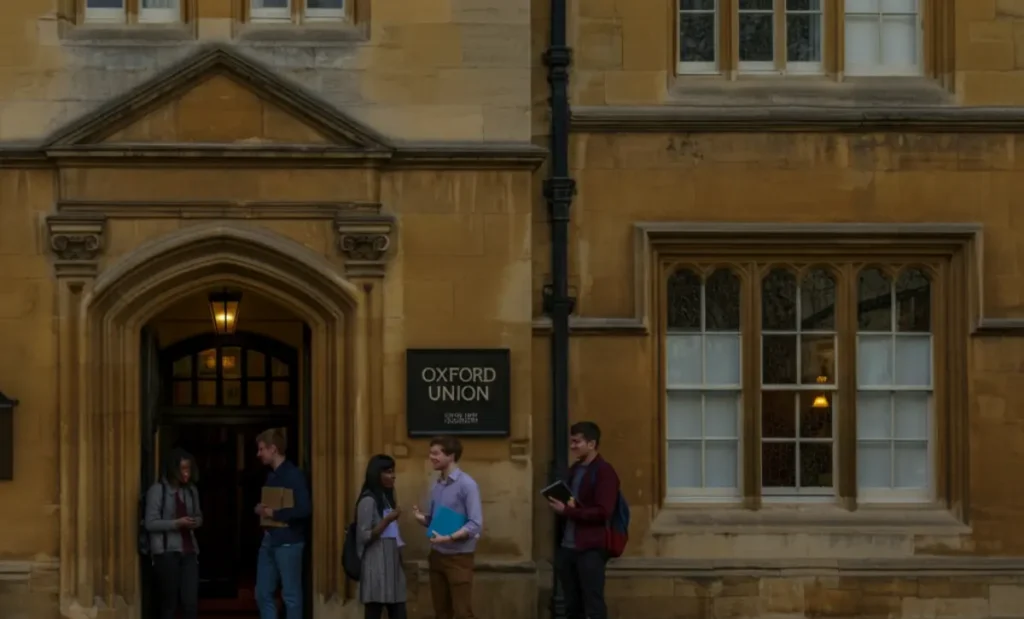This week, the Oxford Union has again found itself under the spotlight. A fresh controversy over its speaker invitation policy has emerged and reignited discussion. Known for a vibrant debate culture, the Oxford Union regularly encounters questions about free speech and the delicate world of student politics.
As students, lecturers, and members of the public weigh in, the society’s decisions are being openly questioned. This attention highlights just how central the Union is to conversations about who gets heard—and for what reasons. In this context, the debate continues to grow more intense.
Where Ideas Collide: The Role of Oxford Union in Student Debate
Since its founding nearly two centuries ago, the Oxford Union has played a unique and lasting role at Oxford University. Over generations, the debate society has invited influential speakers from all walks of life. As a result, students have the chance to engage directly with big ideas and controversial topics.
Many supporters believe this spirit—open to challenging discussions and opposing views—is what makes debating societies so valuable. Additionally, it pushes participants out of their comfort zones. “You don’t really learn unless you hear the opinions you disagree with,” as one attendee recently put it.
The Invite Policy Under Fire
However, not everyone views the Union’s approach in the same way. Recent invitations to specific speakers have sparked heated debate and disagreement. Some argue that giving a platform to controversial figures can enable harmful rhetoric.
Moreover, student groups and activists are now calling for a rethink on how invite policies are set. They believe that student welfare and campus inclusion must not be overlooked. “It’s important to draw a line,” one student participant shared. “Free speech matters, but so does protecting people from hate.”
Free Speech vs. Responsibility: A Balancing Act
On the other hand, the Oxford Union leadership defends its stance on open discussion. They remind critics of the society’s longstanding tradition as a home for debate. Over the years, everyone from global leaders to outspoken revolutionaries has spoken at the Union, which helps to cement its reputation in British public life.
Still, adapting standards for the present day remains a real challenge. The key question for the Oxford Union—and for debate societies throughout the UK—is how to balance free speech with respect and responsibility in student politics.
What’s Next for the Oxford Union?
As this latest debate continues, the Union’s leadership says it is listening closely to feedback from members and the wider university. Because of this scrutiny, many are watching for changes in the invite policy. Any decision could shape both future debates and the culture of the renowned society.
For more context on the history and influence of the Oxford Union, you can read about its legacy in The Guardian’s Oxford Union profile.
Frequently Asked Questions
What is the Oxford Union and why does it matter?
The Oxford Union is the University of Oxford’s independent debate society. Dating back to 1823, its storied halls have hosted lively debates, shaping countless leaders and public figures.
Why has the invite policy generated so much discussion?
The invite policy creates debate because it decides who can speak at Union events. Some see this as a test for free speech, while others worry about its impact on student wellbeing.
How does the Union relate to student politics at Oxford?
Although the Oxford Union is separate from the university’s official student union, it greatly affects student politics. This happens through high-profile speakers and its influence on campus debate.
Suggested Internal Link Anchors:
- Learn more about the Oxford Union’s approach to free speech
- Coverage of student politics and campus debate in the UK
- The history and legacy of debate societies at Oxford University
- Highlights from past Oxford Union speakers
You may also read : Prince Andrew News: Spotlight Remains on the Duke of York
You may visit our official website : nbanews

